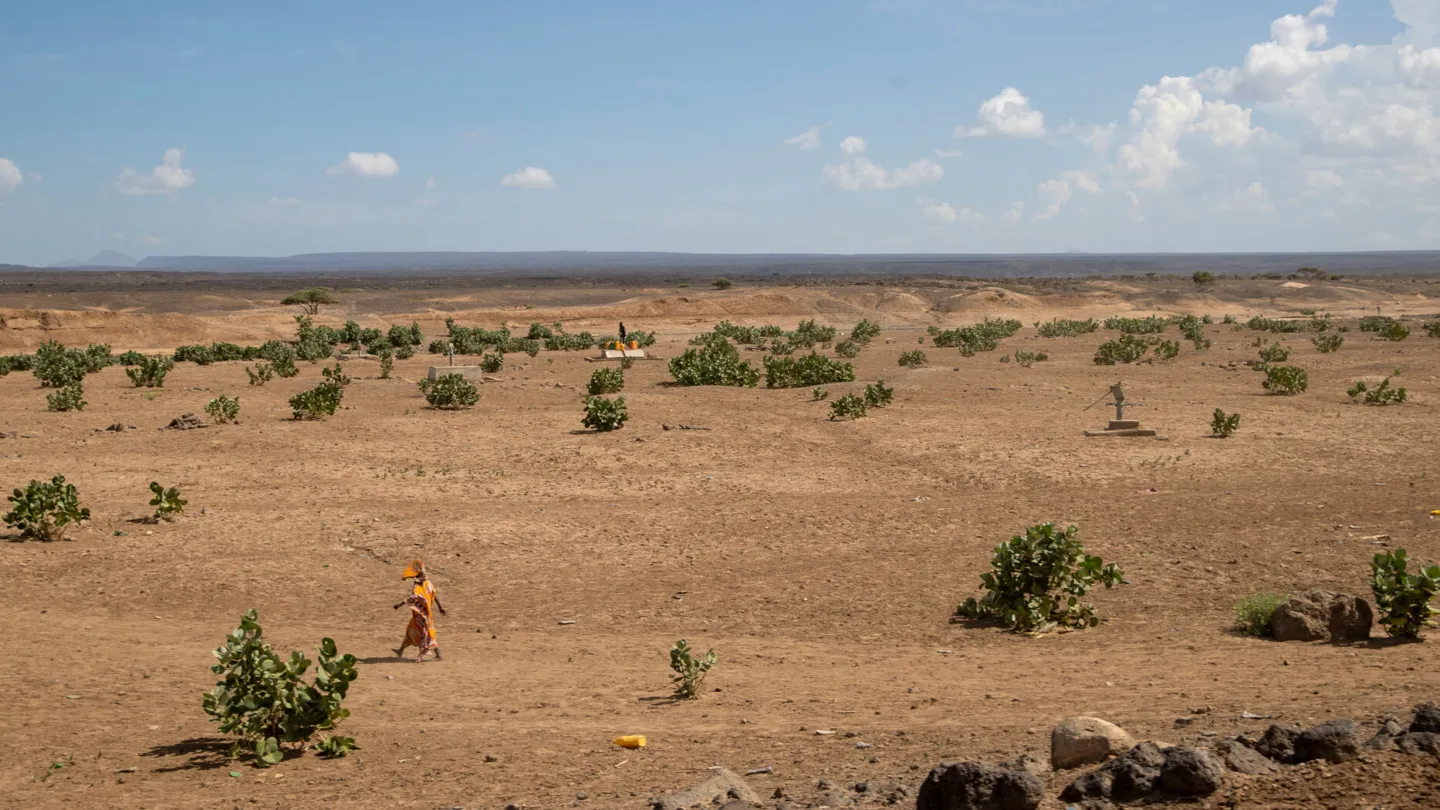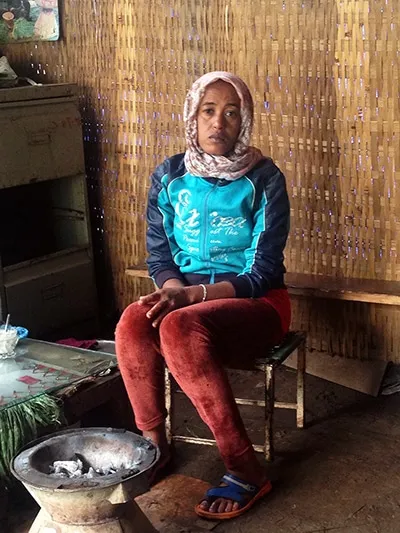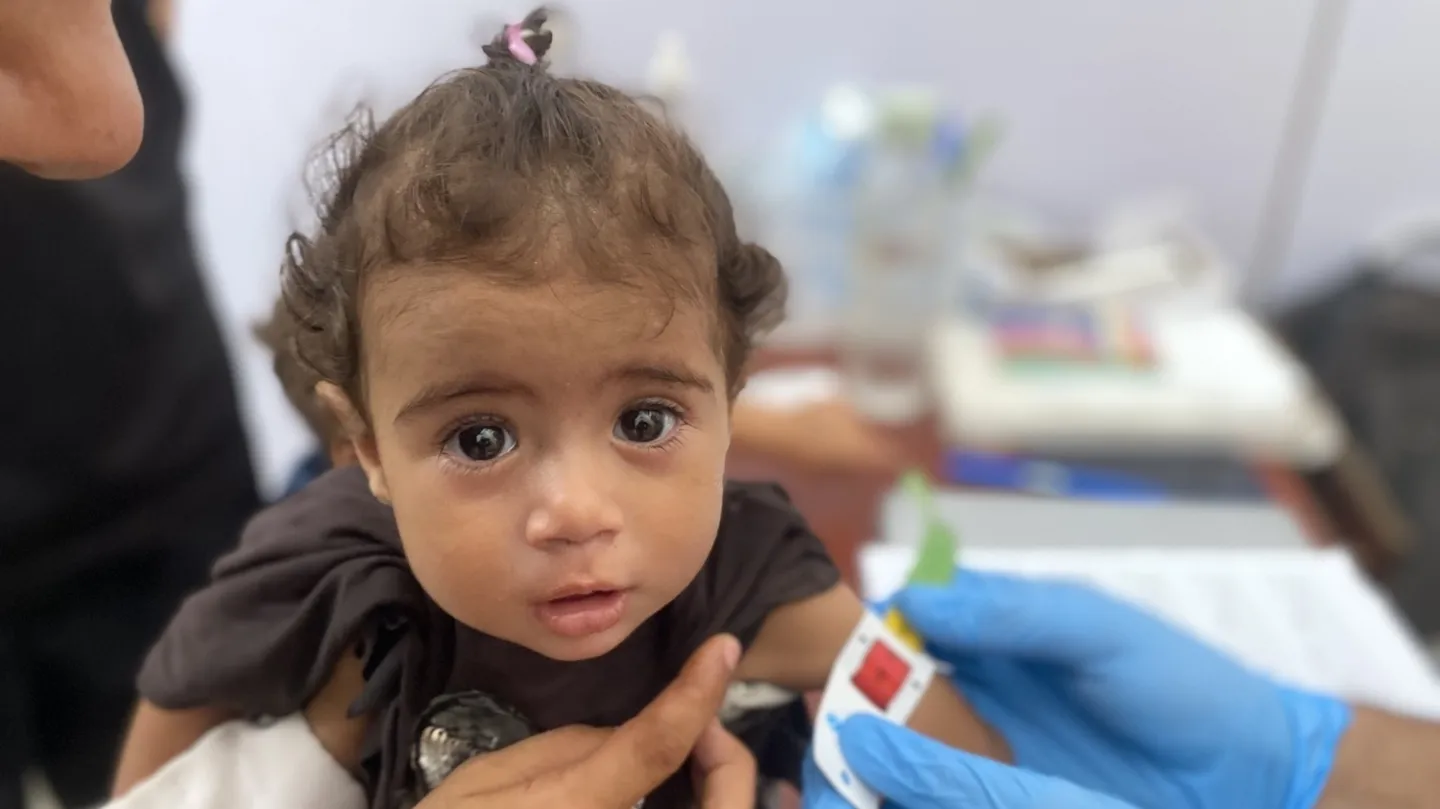How Door-to-Door HIV Testing in Ethiopia Saved a Life
In Ethiopia, women between the ages of 15 and 49 are almost twice as likely to contract HIV as males in the same age group. With the help of health workers, trained by Project HOPE, traveling door-to-door, one woman decided not to let her diagnosis – or a series of personal tragedies – define her.

Tigist had been in bed for weeks when she heard a knock at the door.
“This is unusual. No one has visited me except the one friend I have,” she remembers thinking.
That knock ended up changing her life forever.

Tigist is a 20-year-old resident of Gambella, a mid-sized city in western Ethiopia near the border with South Sudan. She moved to the city about five years ago, after both her parents passed away in a devastating car accident.
Like anyone, Tigist had experienced her fair share of ups and downs. Though the accident left her family fractured and forced her to leave her hometown, she was able to secure a well-paying job as a server at a local bar in her new city. She even started a romantic relationship with a man she met through work.
But after three years of dating, she found out that the man she loved was already married, and the relationship ended. Soon after the break-up, Tigist began feeling weak, dropping weight, and getting sick frequently. She was bedridden for months, but believed her physical symptoms were brought on by the heartbreak she was experiencing after breaking up with her boyfriend.
The Challenge of HIV/AIDS in Ethiopia
Though strides have been made, Ethiopia still faces significant challenges with HIV/AIDS – especially in its younger, female population. The prevalence rate of HIV among Ethiopian women is 1.9%, more than six times the rate among the general population of the United States (0.3%). A country with a prevalence rate of 1% or higher is considered to be experiencing an HIV/AIDS epidemic.
There is also a significant social stigma around the disease, which makes patients reluctant to discuss it or seek medical care. Less than 1 in 3 married women who received a positive HIV test in Ethiopia have disclosed their status to their partner. Prevalence rates are particularly high among Ethiopians who have remarried, which is common there given the widespread practice of child marriage.
A Life Changing Knock
The knock on Tigist’s door was from a team of health workers who wanted her to accept in-home HIV testing & counseling services.
After some convincing, Tigist agreed to receive testing and counseling from the USAID Community HIV/AIDS Care and Treatment (CHCT) program implemented by Project HOPE Ethiopia. She was devastated by her positive result, and it took her a while to summon the courage to accept her diagnosis and agree to begin treatment. But thanks to the support and encouragement of Project HOPE’s CHCT Community Engagement Facilitators (CEFs), Tigist decided to move forward with treatment.
She was determined to persevere in the face of a new obstacle, as she had done so many times before in her life.
“If it wasn’t for her [the Project HOPE-trained health worker] I wouldn’t get the test and be convinced to start medication. The volunteer’s life experience and advice was life changing too. Now I feel strong and healthy again. Life seems easy now,” Tigist told us.
Working Towards 90-90-90
In 2017, Project HOPE was awarded a $39 million grant from the U.S. Agency for International Development (USAID) to implement a community-based HIV program in Ethiopia. The goal of the program is to provide comprehensive HIV prevention, care, and treatment.
As of September 2018, HOPE’s programs have allowed over 108,000 Ethiopians to receive HIV testing services in community settings [non-clinic/non-health facility]. HOPE is working with other global health NGOs and organizations to achieve the UNAIDS’ international 90-90-90 goal by 2020: 90% of all people living with HIV will know their status, 90% of diagnosed patients will receive sustained antiretroviral therapy, and 90% of all patients receiving therapy will have viral suppression.
Tigist’s story is just one example of how HIV testing and counseling can help people who are HIV-positive cope with their status and continue to lead normal lives – in Ethiopia and across the world.



